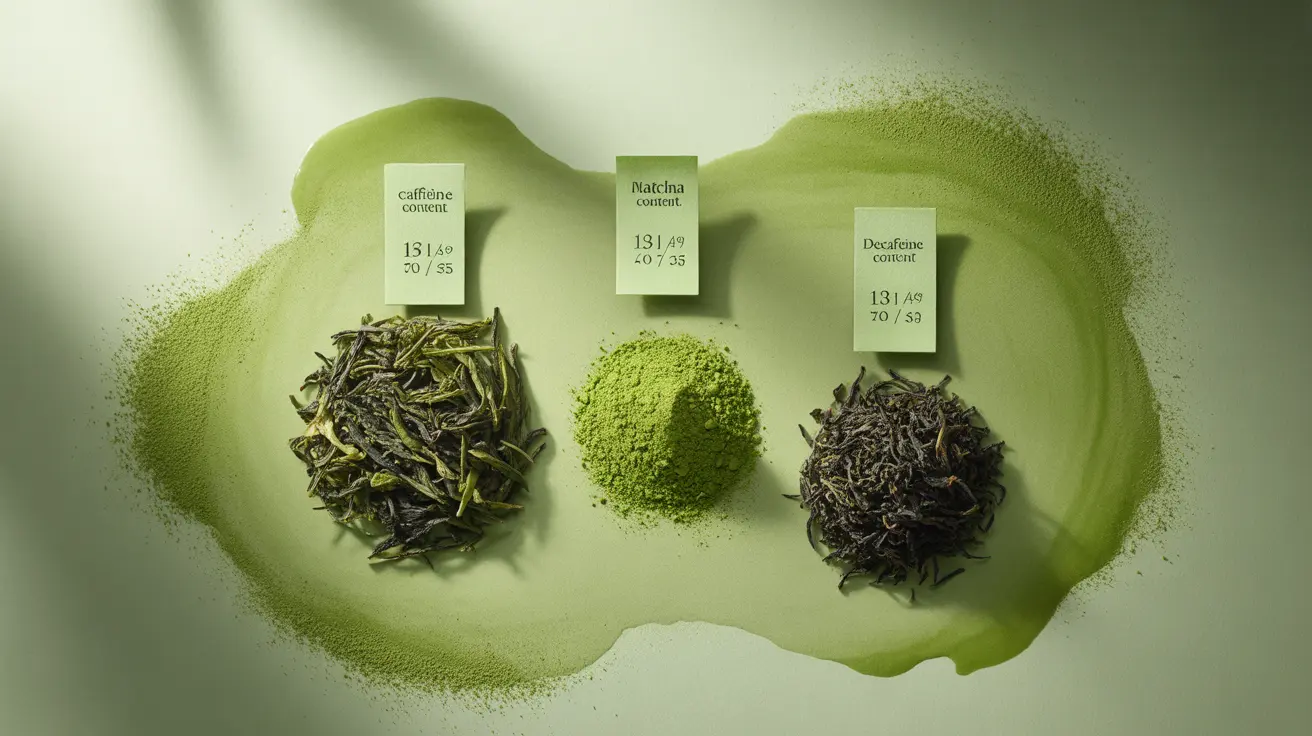Understanding the caffeine content in green tea is essential for anyone looking to manage their daily caffeine intake or make informed beverage choices. While green tea is known for providing a gentler energy boost compared to coffee, the amount of caffeine can vary significantly based on several factors.
In this comprehensive guide, we'll explore exactly how much caffeine you can expect in your cup of green tea and what influences these levels. We'll also compare it to other popular caffeinated beverages and discuss how different preparation methods affect its caffeine content.
Typical Caffeine Content in Green Tea
A standard 8-ounce cup of green tea typically contains between 12 and 75 milligrams of caffeine, with most cups averaging around 25-35 milligrams. This variation occurs because several factors influence the final caffeine content in your cup.
Key Factors Affecting Caffeine Levels
The caffeine content in your green tea can be influenced by:
- Tea leaf quality and grade
- Growing conditions and harvest time
- Storage methods
- Processing techniques
- Brewing temperature and time
- Serving size
Different Types of Green Tea and Their Caffeine Content
Traditional Green Tea
Regular green tea leaves, when properly steeped, typically yield 25-35 milligrams of caffeine per 8-ounce serving. This amount can vary based on the specific variety and brewing method used.
Matcha Green Tea
Matcha contains significantly more caffeine than regular green tea, usually ranging from 70-140 milligrams per serving. This higher content is due to consuming the entire tea leaf in powdered form rather than just the steeped water.
Decaffeinated Green Tea
Decaffeinated green tea contains minimal caffeine, usually less than 2-5 milligrams per cup. However, it's important to note that even decaf varieties aren't completely caffeine-free.
Brewing Methods and Caffeine Extraction
The way you prepare your green tea significantly impacts its caffeine content. Water temperature and steeping time are particularly important factors:
- Hot water (175-185°F): Optimal for standard caffeine extraction
- Steeping time: 2-3 minutes for balanced caffeine content
- Longer steeping times: Increase caffeine content but may result in bitter taste
- Cold brewing: Generally produces less caffeine than hot brewing
Comparison with Other Beverages
To put green tea's caffeine content in perspective:
- Coffee (8 oz): 95-200 mg
- Black tea (8 oz): 14-70 mg
- Green tea (8 oz): 12-75 mg
- Matcha green tea (1 serving): 70-140 mg
- Decaf green tea (8 oz): 2-5 mg
Frequently Asked Questions
How much caffeine is typically in an 8-ounce cup of green tea?
An 8-ounce cup of green tea typically contains between 12-75 milligrams of caffeine, with most cups averaging 25-35 milligrams.
What factors affect the caffeine content in green tea?
The caffeine content in green tea is affected by several factors including the quality and type of tea leaves, growing conditions, processing methods, water temperature, brewing time, and serving size.
How does the caffeine in green tea compare to that in coffee and black tea?
Green tea generally contains less caffeine than both coffee and black tea. While coffee typically contains 95-200 mg per 8 oz cup, and black tea contains 14-70 mg, green tea usually contains 12-75 mg of caffeine per 8 oz serving.
Does brewing time or water temperature change the caffeine level in green tea?
Yes, both brewing time and water temperature affect caffeine levels. Longer steeping times and hotter water temperatures extract more caffeine from the tea leaves. The optimal brewing temperature is 175-185°F for 2-3 minutes.
What are the caffeine differences between regular green tea, matcha, and decaffeinated green tea?
Regular green tea contains 12-75 mg of caffeine per cup, matcha contains 70-140 mg per serving, and decaffeinated green tea contains minimal amounts (2-5 mg per cup). Matcha has higher caffeine content because you consume the entire tea leaf rather than just the brewed water.




